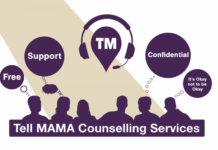The Scottish Information Commissioner has upheld the Scottish government’s refusal to name charities and NGOs that it is funding to carry out counter-radicalisation work connected with the controversial Prevent strategy.
The Scottish government initially claimed that the information is exempt from disclosure on national security and law enforcement grounds. After an appeal was filed with the Scottish Information Commissioner, the Scottish government added the claim that disclosure would create a risk to the health and safety of individuals working for organisations they fund.
Edinburgh has disclosed the names of a limited number of NGOs that it has funded to support Prevent delivery in Scotland, but this accounts for just 13% of the funds that it says that it has provided over the period 1 April 2011 to 16 July 2016. Besides this, it is known from freely available accounts filed at Companies House that Amina Muslim Women’s Resource Centre received £15,000 in 2014-15 and £21,000 in 2015-16 to support Prevent delivery in Scotland.
The Scottish Information Commissioner says that she has found that “disclosure of the information would, or would be likely to, endanger the physical or mental health or the safety of individuals” and that this risk outweighs the public interest in disclosure.
The Scotland Against Criminalising Communities (SACC) organisation says it regrets the Commissioner’s decision and believes that continued secrecy will damage the confidence of Scotland’s minority communities and undermine the work of organisations that have avoided involvement in the racist Prevent strategy.
SACC Chair Richard Haley said: “The Scottish government’s last-minute addition of the health and safety issue – which they did not refer to in their initial response or in their internal review of their response – is a transparent device to avoid disclosure. It’s harder to refute health and safety claims than other Freedom of Information exemptions. In this case it has allowed the Commissioner to avoid scrutinising Ministers’ claims about the relationship of the Prevent strategy to national security and crime prevention.
“The involvement of public-sector workers – teachers, university staff, social workers etc – in Prevent is openly accepted in official publications. There has never been any suggestion that these people are endangered by their work. People working for third-sector organisations may be perceived by minority communities as being more trustworthy than public-sector workers, but in fact some of them are also involved in Prevent. Scottish Government policy is evidently to conceal this fact and to use any argument that comes to hand to do so.”
Subscribe to our newsletter and stay updated on the latest news and updates from around the Muslim world!






















